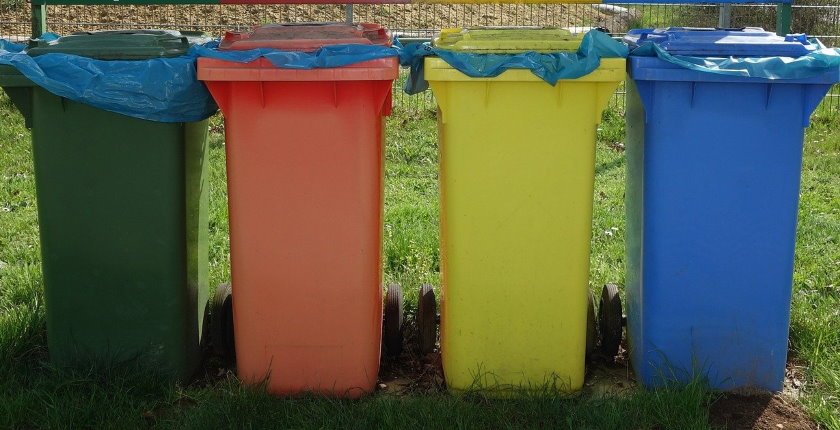The launch of an advanced solid operations in Bosnia waste management center in Živinice, Bosnia and Herzegovina, marks a significant advancement in operations within the region.
This initiative, which has been in development for several years, aims to revolutionize waste disposal methods for more than 95,000 residents in Živinice, Banovići, and Kladanj.
This facility goes beyond a conventional landfill, representing a significant move towards compliance with European Union environmental standards and promoting long term sustainability.
Supported by the European Bank for Reconstruction and Development (EBRD), Sweden, and the European Union, this facility is the first sanitary landfill in Tuzla canton that complies with EU regulations.
Previously, much of the country depended on illegal dumping sites, which posed considerable health and environmental hazards.
With this new establishment, Bosnia and Herzegovina embarks on a cleaner and more sustainable approach to waste management.
Pioneering Progress in Tuzla Canton
While Bosnia and Herzegovina has made incremental progress in environmental reform, significant gaps have persisted, particularly in solid waste management.
Currently, only six locations in the country meet EU standards, with an urgent need for ten additional sites.
This facility symbolizes not only an improvement in infrastructure but also a transformation in attitudes and an increasing commitment to environmental stewardship.
The timing of this project is crucial. The center not only addresses pressing ecological issues but also promotes forward-thinking practices such as recycling and energy recovery.
With a capacity exceeding one million cubic meters, along with modern gas management systems and leachate treatment facilities, it greatly minimizes the risks of groundwater contamination and greenhouse gas emissions.
How Contemporary Infrastructure Facilitates Circular Economies
Undoubtedly, contemporary waste management infrastructure is essential for the development of circular economies.
This innovative facility serves not merely as a disposal site for refuse; rather, it functions as a center for the reprocessing, recycling, and reintegration of waste into the economic system.
As a result, local communities can transition from a traditional linear model of “take-make-dispose” to one that prioritizes sustainability, reuse, and environmental well being.
Additionally, this facility lays the foundation for job creation within green industries. As recycling processes become more efficient and waste sorting improves, new job opportunities will emerge in areas such as logistics, technology, and environmental oversight.
conditionally, local residents will gain not only from a cleaner environment but also from enhanced economic engagement.
Fostering Regional Collaboration Through Eko-Sep
To effectively realize this transformative project, the municipalities of Živinice, Banovići, and Kladanj joined forces to establish a collaborative waste management entity known as Eko-Sep.
This regional organization oversaw the construction phase and will now be responsible for the ongoing management of the facility.
Their partnership serves as a model for other municipalities in Bosnia and Herzegovina, many of which continue to face challenges related to illegal dumping and irregular waste collection.
Given that governance and accountability are crucial in infrastructure initiatives, this collaborative approach bolsters both project execution and public confidence.
It also enhances long-term sustainability, as responsibilities are clearly defined and collectively funded.
International Support Fuels Progress
It is essential to acknowledge the various funding sources that have enabled this project to come to fruition.
A €5 million loan from the EBRD was supplemented by a €2.65 million grant from Sweden and an additional €374,000 grant from the EU through the Western Balkans Investment Framework.
These well coordinated investments have not only established physical infrastructure but also created a blueprint for future developments.
Stela Melnic, the Head of the EBRD in Bosnia and Herzegovina, conveyed her endorsement by stating, “We are dedicated to assisting Bosnia and Herzegovina in enhancing its environmental infrastructure.
The modernization of waste management and the improvement of recycling rates are essential for reducing pollution and fostering opportunities within the circular economy.”
This perspective was supported by representatives from Sweden and the EU, who highlighted that a cleaner environment ultimately benefits all citizens.
Birgitta Jansson, the Deputy Head of Development Cooperation at the Swedish Embassy, remarked, “We hope that the successful practices of this project will serve as a positive example for other municipalities.”
It is evident that operations in Bosnia and Herzegovina are not only progressing locally but are also garnering international attention.
Positive Environmental and Social Impact: A Future Model
This center not only aids in preventing groundwater and soil contamination but also reduces the risk of hazardous fires resulting from unmanaged waste.

Additionally, its emissions control systems will help decrease methane emissions an often underestimated but highly potent greenhouse gas. matter, its influence will extend well beyond the three municipalities it serves.
Moreover, enhanced waste management will contribute to improved community health. Cleaner neighborhoods and a reduction in pollution-related illnesses will alleviate pressure on the healthcare system.
For vulnerable groups, such as children and the elderly, safer living conditions will lead to an improved quality of life.
As Bosnia and Herzegovina advances toward EU integration, adherence to environmental standards is imperative.
This center represents a significant milestone in that journey. While there is still a need for more compliant landfills, this project demonstrates that positive change is both achievable and advantageous.
Expert Editorial Comment
In summary, the inauguration of the new operations in Bosnia waste management facility in Živinice marks a significant milestone in the operations within Bosnia and Herzegovina.
With its eco friendly design and focus on collaboration and circular economies, this initiative serves as a symbol of optimism and a model for other regions to follow.
Through robust partnerships, regional collaboration, and strategic financial backing, Bosnia and Herzegovina is making significant strides toward meeting European environmental standards.
These initiatives not only enhance waste management practices but also benefit communities, generate employment opportunities, and protect natural resources for future generations.
This project exemplifies the potential outcomes when vision is effectively translated into action.
As other municipalities explore similar initiatives, they can draw inspiration from the successful model established in Tuzla canton.

